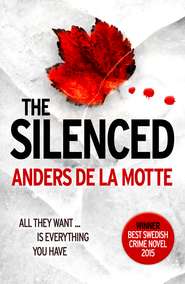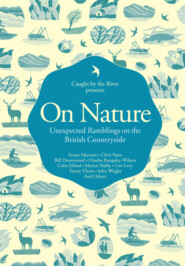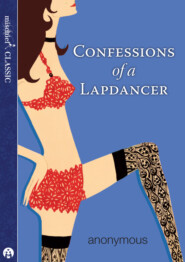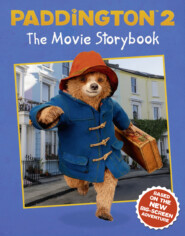По всем вопросам обращайтесь на: info@litportal.ru
(©) 2003-2025.
✖
Empire Girls
Настройки чтения
Размер шрифта
Высота строк
Поля
She threw one of her legs over the iron arm of the bench and leaned into me.
A train far off in the distance sang its song. Ivy bit her nails. “When we were little you loved that sound,” she said. “Did you know that? We used to lie in bed together and play that game ‘Where is it going?’ and then we’d make up fantastic adventures.”
“Don’t bite your nails, Ivy. It’s a childish, unclean habit.” I said, not acknowledging her memory, even though I did, in fact, recall it.
She looked at me and smiled. A true, infectious smile, one that always softened any roughness I felt toward her. Ivy has that affect on people, causing whiplash of affection. “Darling, of course I remember,” I said. “I’m just not in the mood for memories right now. Tunnel of grief and all that.” She nodded her head and sat back up.
On that platform, with my high-laced boots crossed at the ankle, and Ivy slinking lower down on the bench every second, all I could do was read my copy of Edna St. Vincent Millay’s A Few Figs From Thistles. I especially liked the poem entitled “MacDougal Street,” though it made me cry.
“He laid his darling hand upon her little black head,
(I wish I were a ragged child with ear-rings in my ears!)
And he said she was a baggage to have said what she had said;
(Truly I shall be ill unless I stop these tears!)”
I clutched the book to my breast and hoped against hope that Empire House wasn’t anywhere near MacDougal Street.
* * *
Ivy settled in by the window on the train. She had father’s leather rucksack on her lap and kept buckling and unbuckling the straps. She was quite talkative, which was different than usual.
I was hoping she’d sleep on the train and I could read. Ivy slept when she was excited about something she had to wait for—she was always the first to bed on Christmas Eve. But as she spoke, I began to understand that she was as nervous as I was about the trip. I found myself worrying about what the city would do to her. It never once occurred to me to worry about myself. My objective was clear: find Asher, convince him to sign the house over to me and get a job to acquire the money to pay the back taxes on our home. And I told her as much when she asked me.
“Aren’t you the least bit curious?” she asked, frustrated.
“I wouldn’t be human if I wasn’t, Ivy. But please remember, I don’t intend to get involved in any sort of life once we get there. I plan on finding work, finding Asher and then finding my way home. What you do after all is said and done is your prerogative.”
“So you’d just give up whatever life we make for ourselves, and return to that desolate place?”
Desolate?
I leaned across the narrow space between us and took her chin too sharply in my hand. “Have you ever even considered that as you made your life plans, that I was making plans of my own? Or did you think I was an empty-headed fool who lived to serve you and Papa?”
She yanked her face away and leaned her forehead against the window.
“I suppose I thought you’d... I don’t know. Did you? Did you have plans?”
“Of course I did. My plan was to live quietly at Adams house until I died. That sounds terrible to you, doesn’t it? A wretched sort of existence. But let me tell you something, Ms. Ivy Adams. As we grew older, the fact that I would not marry was not lost on me. How could I? Who was I to meet? I thought you would finally get up the courage to leave Forest Grove, and I would look after Father until he was an old, old man. I would be the keeper of our traditions...I would be a safe harbor for you, if you ever needed anything. And I would always have the house. And just look at the both of us now. Our father died too soon. He left us with lies, secrets and no money. I no longer have the peaceful future I set out for myself. And yet? Here we are! On our way to YOUR future. So, to answer your question...YES. I would return to that desolate place. Because that was my dream.”
Ivy took a moment to respond. I could almost see the thoughts brewing behind those lovely eyes of hers. I could see her deciding whether to be mean, or sarcastic or simply honest. In the end, she chose humor.
“Well, now, Rose. That was quite a monologue. I should note that down. Really. I’m not kidding...you’d be a good writer I think. You read enough. Have you ever thought of that instead?”
“And you, Ivy, would make a good politician,” I said. I had to smile at her. She could have lashed out at me, but she chose not to.
“I think I’ll read my book now, if it’s not too rude,” I said.
But I never got the chance, because we’d already arrived at Grand Central Station.
* * *
“Come, let’s get the trunks,” I said as we disembarked.
“No, you get them. I’ll go find the driver they sent from Empire House.”
She ran away from me quickly and was swallowed by the crowd.
“Ivy!” I yelled, climbing back up the steep steps of the transom, trying, in vain, to catch a glimpse of her, and holding my hat against the hot, smelly air that came flying at me like the breath of a beastly giant.
I was pouring sweat already, and my lace collar—the one Ivy’d begged me not to wear—was sticking tightly to my neck. I was choking, probably to death, and I’d already lost my sister.
“Here you go, ma’am,” said a young man who’d taken my trunks from the luggage car.
“I say, are you planning on helping me get these trunks through the station and out...side?” I had no idea where I was going.
He held out his hand, and when I went to shake it, a man pushed passed me, laughing. “He wants a tip, not a handshake... Country girls, I swear, you’re all knee-slappers.”
Our money was so limited that I wasn’t going to waste it on handouts. Chivalry should be free, anyhow. So I looked at the trunks and convinced myself I could do it on my own.
I shook my head at him and tried to politely explain why I was not filling his hands with coins. Only no one could hear anything over the din of voices, the steam and chaos. I reached down and placed my gloved hands on the straps of each trunk, stooped over and began to drag what remained of us through the station. I can only imagine what I looked like. Finally, I saw the glass doors ahead of me, and I saw Ivy in her purple satin dress with the beads at the bottom shining in the sun. I wasn’t upset she’d worn it anymore. I’d be able to find her anywhere.
I lurched outside banging the trunks against people and bricks and anything that got in my way.
She was leaning against a black sedan, but it was the driver who saw me first. There was a sign taped to the passenger window that read EMPIRE HOUSE.
For some reason, it was that sign...affixed haphazardly to that dirty window that brought the whole ordeal into focus. No longer was this some foggy, dark dream. This was my life, and I was suddenly very present in it. Nothing was going to fit neatly into the pages of a book. Life, it seemed, was busy, and messy and loud. Everything about this city was so loud.
Ivy turned to look at me, following the driver’s gaze, and put her hand over her mouth. She laughed so hard I thought she’d lose her breath.
“Thank you ever so much for the help,” I said, trying to push my hair back from my sticky forehead.
“I know how much you like hard work,” she said as she came to me and took the trunks a whole three steps to the waiting automobile. “But I never considered you would try to become a mule. Why didn’t you let the porter take these?”
“Because he wanted money.”
The driver took the trunks from Ivy and opened the door for me.
“Thank goodness, a gentleman,” I said as he held out his hand, I thought, to escort me into the cabin of the car.
I started to place my hand on his palm, but he pulled it away. “Sorry to disappoint, miss, but I was sorta askin’ for a tip,” he said.
“Are you going to embarrass me every single day of my life, Rose?” asked Ivy as she reached into the outside pocket of Father’s bag and pulled out a few coins. She dropped them in his hand, slid into the sedan next to me. Then she batted her eyelashes, which made him smile at her. The whole flirtation happened practically in my lap, forcing me to lean back so that their hands didn’t touch me by accident.
“What’s your name, fella?” asked Ivy.
“Jimmy, doll,” he said cocking his hat to one side. He was darker, this Jimmy. “Black Irish” Mother used to say, when we were impressionable young girls. She’d say it with a bit of disdain when we’d see them in town. Wrong side of the track kind of people. We Adamses didn’t belong on the track at all, so we could always identify people on, off, on the right side or the wrong side of any situation. Father said it made us well rounded.











